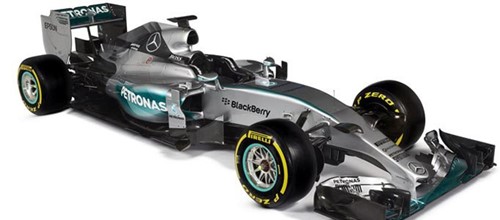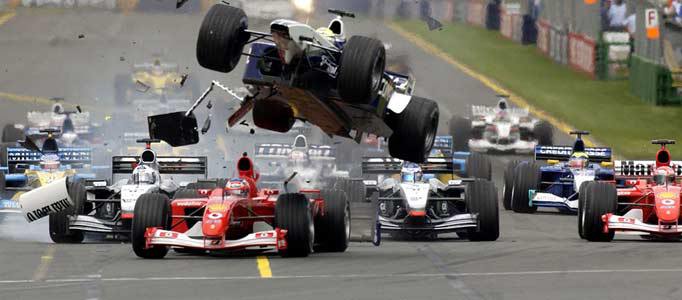Despite the best efforts of Giedo van der Garde, the Australian Grand Prix was a rather dull affair (unless guessing which car will retire next is a hobby of yours). From the end of the first practice session, it was clear one of the two Mercedes drivers were going to win the race. It seems the race for third place will be rather more exciting than the head to head between Rosberg and Hamilton. Is this really what we want from what was once the greatest motorsport?
This isn’t the first time a team has dominated F1 to this extent. Red Bull had four years of consecutive victories before Mercedes took their position as top dog, and everyone remembers the days of Schumacher seemingly winning every race at a canter over a five year period. Why is it now that fans seem to be so up in arms about one team doing so well?
Mercedes at the top
One of the major complaints from many of the teams involved in Formula One is the constant changing of rules and regulations, seemingly designed to ensure that any winning team is neutered for the following season. Red Bull’s genius head designer Adrian Newey is one of the more vocal critics. He told The Guardian, “The car is not designed for you but there is very little room for manoeuvre. The cars are a combination of fairly prescriptive regulations that have become more prescriptive every year for six seasons.”
His main issue is how the sport has focused more on the engine than the other components that make up a successful Formula One car, the chassis and the driver. Mercedes have improved on an already excellent engine for 2015, whilst Red Bull have been left furious by Renault’s lack of improvement on their engine. It seems that the season is already over for Red Bull before it has even began. Newey said, “The cars are converging. You’ve only got to look at the cars out there. Apart from the small differences in the nose shape if you painted all the cars white, you’d need to be a reasonably good observer to know which one was which.”

2015 Mercedes F1 W06 Hybrid – Too good for F1?
This lack of variety has affected one of the best aspects of Formula One – the engineering and design of cars to make them the fastest on the track. If every car looks the same, then it will be down to raw engine power rather than intelligent or innovative design work. The increasing uniformity of the cars will only add to the idea that Formula One is becoming boring. Even Hamilton and Rosberg voiced their concerns that fans will be put off by the ease with which they win the races.
Hasn’t this always been the case?
Formula One always used to move from one team having dominance to another, often caused by one constructor finding a formula for success before the others caught up. But it has never seemed to be so imbalanced as now. When Red Bull dominated during their four year period (2010-2013), there were several instances when the race came down to the wire. Alonso pushed Vettel close in 2010 and 2012. The same happened with Schumacher in 2000 and 2003, with the German driver narrowly beating Hakkinen and Raikkonen respectively. Even in the past when teams like Williams and McLaren dominated, there was still a sense of competition and that whatever the result, it would be close. That’s not the case with the current state of Formula One.
What’s more there seems to be a lack of leadership in the sport, no one looking to address the complaints of the teams and fans around the world. Ecclestone’s control of the sport remains as strong as ever, his grasp of what works is not. Coming out against the internet bloggers and audience who drive the conversation in the modern age, preferring that key demographic of seventy plus rich men. Compare his attitude to Formula E, where fan engagement has become a crucial part of the sport, even giving cars a speed boost during races.
With Red Bull threatening to pull out of F1 altogether, and smaller teams like Sauber and Manor having to resort to pay drivers, the sport is in a precarious position. The last things it needs is for boredom through Mercedes domination to become the norm.
What does the future hold?
Decreasing viewing figures and attendances will surely speak louder than any complaints from fans. Sponsorship and advertising money is the lifeblood of Formula One, so the status quo should not be expected to stay for long. Formula One has not been afraid to change the rules to make the sport more competitive, sometimes for the better, sometimes for the worst. The question is not if, but when this will happen. The F1 2015 season may already be a dead rubber event. The hope is that the FIA will realise this soon and make the necessary changes to encourage competition and excitement to return to the sport.





 Facebook
Facebook Twitter
Twitter Instagram
Instagram LinkedIn
LinkedIn Youtube
Youtube